According to a report by World Bank, India comprises only 65% of literate women as opposed to 80% men. Moreover, India has the lowest female labour force participation rate in the world. Out of 131 countries, India ranks 120 in female labor force participation rates. Hence, the contribution of women to the progress of the Indian economy is less than half the global average. Even if 50% of the women's population joins the workforce, it could give a 9% boost to the country’s economic progress.
In India the female labour participation rate is relatively low, standing at approximately 37%. A recent 2024 survey report published by the Udaiti Foundation and Ashoka University’s CEDA reveals that although 73% of companies have made diversity commitments, only 21% have established strategies and actions in place to support these pledges. India could potentially lose US$ 6 trillion in GDP by 2050 if women continue to be excluded from the formal workforce.
There has always been a significant gap in providing education and employment opportunities to women, especially in rural India. Factors such as limited access to education, societal pressures, lack of awareness, unsafe or uncomfortable commutes, the digital divide, and safety concerns often limit women’s participation in the workforce in the first place and/or compel them to leave their jobs prematurely. To address this issue, the Lodha Foundation created Lodha Unnati, a programme aimed at promoting the social and economic development of the country by empowering women to work in formal employment and receive regular monthly salaries.
Lodha Unnati: Creating Independent, Confident and Empowered Women
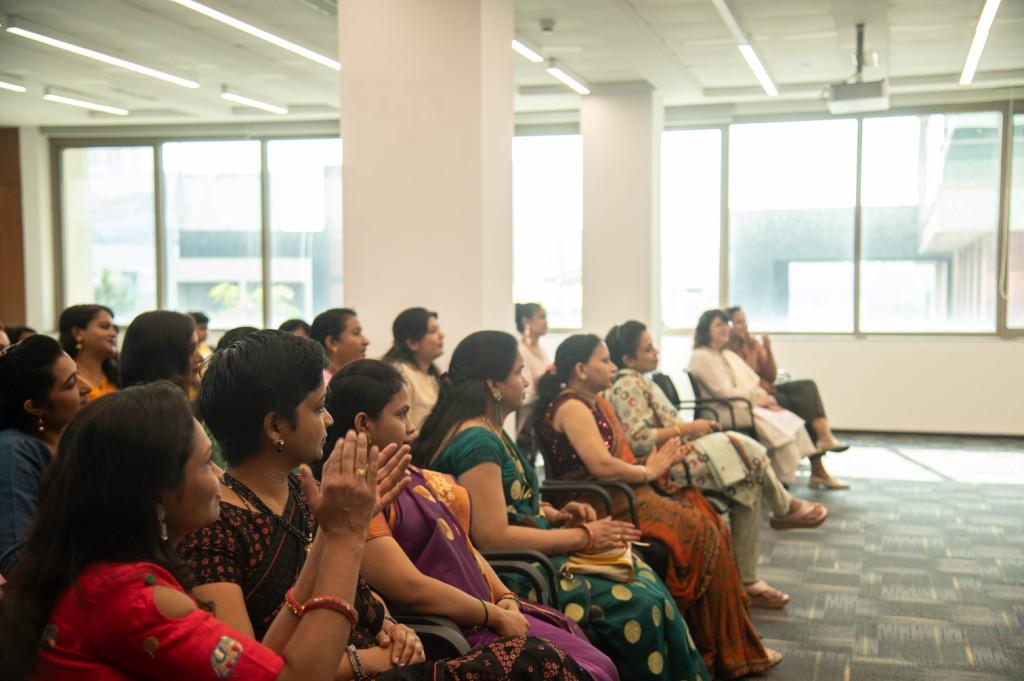 Lodha operates under the ‘Do Good, Do Well’ philosophy. Alongside their efforts to reduce carbon footprints and guide talented students toward fulfilling careers, they have also championed the cause of empowering and uplifting women. They are firm in their belief that India can achieve its full potential only when its women are independent, confident, and empowered.
Lodha operates under the ‘Do Good, Do Well’ philosophy. Alongside their efforts to reduce carbon footprints and guide talented students toward fulfilling careers, they have also championed the cause of empowering and uplifting women. They are firm in their belief that India can achieve its full potential only when its women are independent, confident, and empowered.
Lodha Unnati brings together women from all across Mumbai, including the micro-market pockets of Thane, Navi Mumbai, Dombivli, Bengaluru, and Pune. The programme trains women in employability and soft skills, such as communication, and collaborates with companies to offer them full-time employment. They offer both hybrid and remote opportunities with fixed monthly income and incentives such as learning and growth opportunities, mentorship, and more.
Established in 2023, the programme addresses barriers that prevent women from realizing their full potential. Lodha Unnati offers a variety of job readiness services including career counselling, mentorship, employability, digital literacy skill development training and job referrals. They offer placement support with leading companies with aligned Diversity Equity and Inclusion (DEI) goals making them capable enough to earn a living and contribute towards the growth of the nation. It ensures that the women trained and employed under the programme are placed in a gender-inclusive workspace that allows them a close-to-home commute (ideally less than 1 hour, wherever feasible) and support from like-minded people.
Since its launch, Lodha Unnati has registered over 900 women in the programme, of which, over 400 have completed career counseling, more than 200 have received job referrals, and 60 women have been placed successfully in jobs.
 Kathryn Moore, Head of Women’s Empowerment at the Lodha Foundation is spearheading Lodha Unnati. She is passionate about bringing change to the lives of every woman to make them understand their choices and act on opportunities to be self-sufficient. She also contributes to diversity, equity, and inclusion strategy and employee volunteering engagement efforts at Lodha internally.
Kathryn Moore, Head of Women’s Empowerment at the Lodha Foundation is spearheading Lodha Unnati. She is passionate about bringing change to the lives of every woman to make them understand their choices and act on opportunities to be self-sufficient. She also contributes to diversity, equity, and inclusion strategy and employee volunteering engagement efforts at Lodha internally.
Shedding light on their approach, Moore says, “Lodha Unnati’s model takes into consideration various concerns of women, such as limited access to tech devices and cellphones and limited mobility due to personal preferences, family restrictions, financial and most importantly safety issues, among others. We have our upskilling to placement programme within a 1-hour radius of their home. We offer in-person rapid upskilling, placement support, and mentorship. We believe that free mentorship and career counseling can propel women into the workforce.”
Getting more women in the construction and real estate industry
In FY25, Lodha has initiated implementing an ‘Unnati Champions’ program, where Heads of Departments would work closely with self or department-nominated Unnati Champions to develop and implement fit-for-purpose Unnati strategies to increase female participation and women’s engagement in their department. This collaborative effort aims to create a more inclusive and diverse work environment, ensuring that all employees have equal opportunities to grow and succeed.
Women make up only 12% of the construction workforce in India, and just 1-2% hold management or technical positions. Lodha Unnati is championing women in the construction industry by working to understand and create inclusive and enabling workplace environments both internally and externally.
On April 17th, 2024, Lodha’s inaugural all-women construction management team commenced their journey with a groundbreaking ceremony, marking a significant stride not only for Lodha but for the entire real estate sector in India. As a part of the first-of-its-kind programme, 12 women underwent rigorous training. In a period of six months, they participated in 37 on-the- job sessions, giving more than 120 hours of their time. This all-female construction management team in Upper Thane is revolutionizing the narrative of women in the construction industry and pioneering every aspect of building execution.
Their Campus-to-Corporate Outreach Programme aims to create a direct pathway for women entering the construction industry by connecting them with real-world experiences, mentorship, and career opportunities. Organized by Lodha and its partner companies, the programme focuses on empowering female engineering students and graduates, particularly in the construction sector. It includes a series of key initiatives designed to bridge the gap between academic learning and industry requirements.
A Glimpse of Corporate Tie-ups and Skill Development Centre
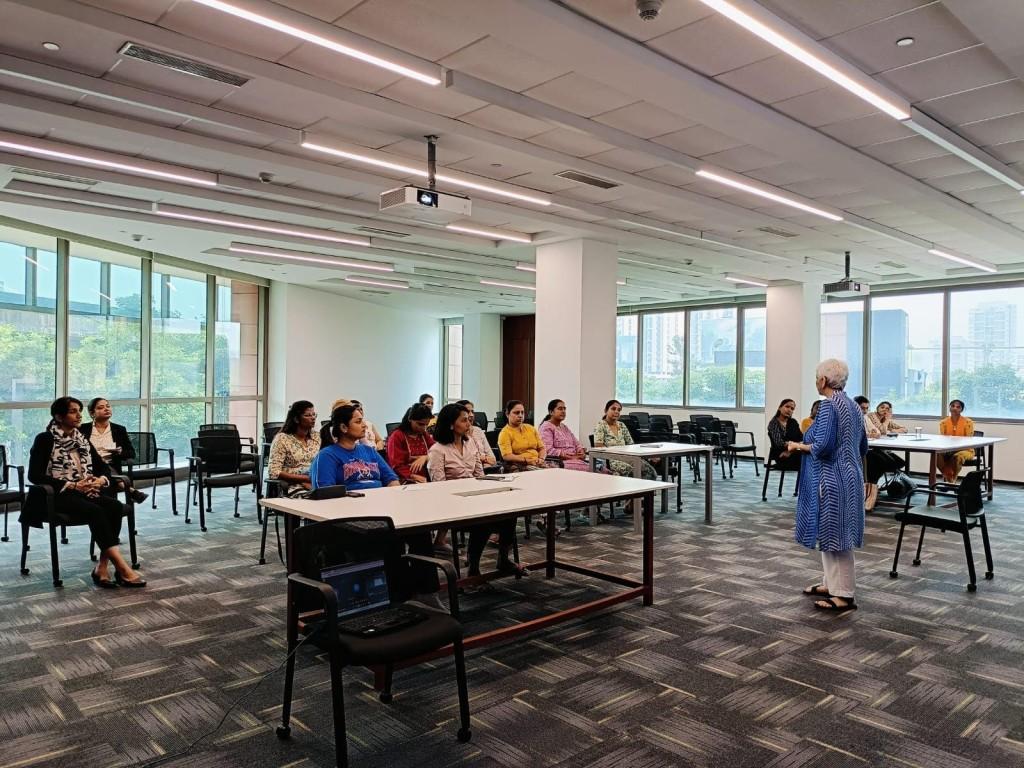 Lodha Foundation’s Unnati programme and employers, such as Tech Mahindra, have collaborated to create employment opportunities for women, aiming to bridge gender gaps in the workforce. The successful pilot programme, a result of this partnership, sets the stage for broader collaboration to empower women to secure formal employment across multiple cities in India. The pilot initiative, focusing on remote work, addressed challenges faced by women balancing caregiving responsibilities. The outcome was promising as the participants acquired new skills which helped them earn consistent salaries, by effectively balancing work and personal life.
Lodha Foundation’s Unnati programme and employers, such as Tech Mahindra, have collaborated to create employment opportunities for women, aiming to bridge gender gaps in the workforce. The successful pilot programme, a result of this partnership, sets the stage for broader collaboration to empower women to secure formal employment across multiple cities in India. The pilot initiative, focusing on remote work, addressed challenges faced by women balancing caregiving responsibilities. The outcome was promising as the participants acquired new skills which helped them earn consistent salaries, by effectively balancing work and personal life.
Encouraged by the success, Tech Mahindra intends to explore more gender-responsive employment options, including night shift opportunities with childcare support. Plans are underway to expand a similar model with other like-minded employer partners to other cities, addressing social barriers and providing targeted recruitment support. This partnership exemplifies the potential of public-private collaboration in creating inclusive work environments, promising economic and professional empowerment for women, and setting a precedent for inclusive practices across industries.
Lodha Unnati has also started operating through satellite sites close to women’s homes, colleges or local NGOs. With support from volunteers, Lodha Unnati intends to offer job readiness services to over 6,000 women in the next three years, with a goal to support, place and retain 3,000 women in jobs.
Discussing their upskilling initiatives at their Skill Development Centre, Moore says “We started with one centre in Dombivli called Palava. We're now working with colleges and other NGOs that benefit a large number of women to see how we can work through this. We have corporates lining up stating they want to hire more women at both freshers and returnee levels. One example of Unnati bringing together employer partners to propel women into the workforce is identifying the hiring needs of a leading hotel brand, a staffing company and various partners in the BFSI sector. They would like to see both women freshers and women returnees get back into the workforce in their high-growth projected sectors.”




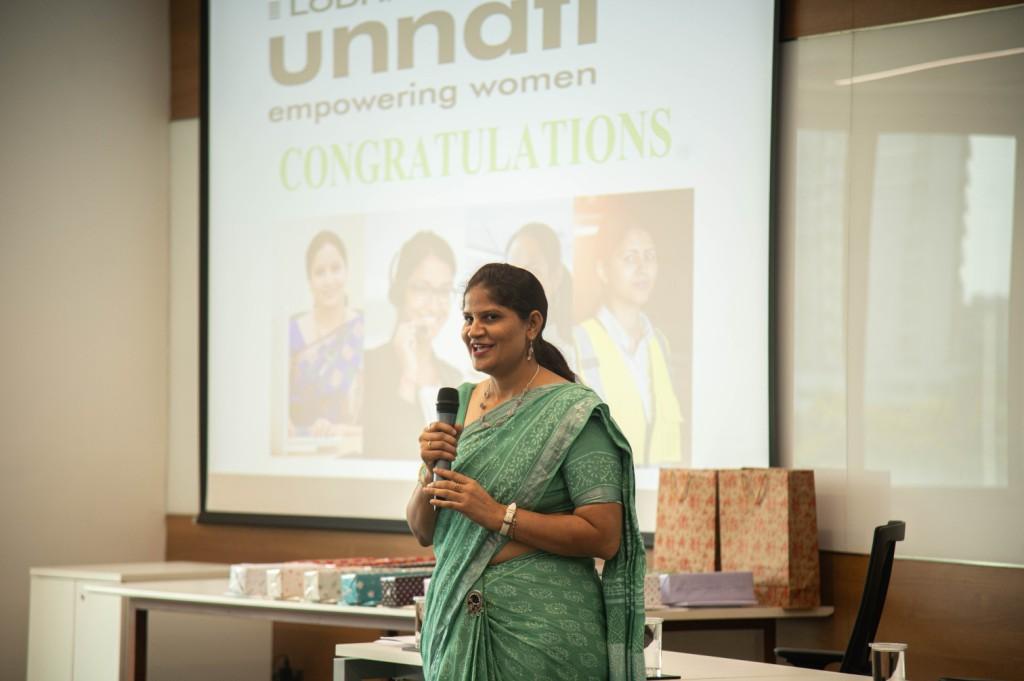
 Lodha operates under the ‘Do Good, Do Well’ philosophy. Alongside their efforts to reduce carbon footprints and guide talented students toward fulfilling careers, they have also championed the cause of empowering and uplifting women. They are firm in their belief that India can achieve its full potential only when its women are independent, confident, and empowered.
Lodha operates under the ‘Do Good, Do Well’ philosophy. Alongside their efforts to reduce carbon footprints and guide talented students toward fulfilling careers, they have also championed the cause of empowering and uplifting women. They are firm in their belief that India can achieve its full potential only when its women are independent, confident, and empowered. Kathryn Moore, Head of Women’s Empowerment at the Lodha Foundation is spearheading Lodha Unnati. She is passionate about bringing change to the lives of every woman to make them understand their choices and act on opportunities to be self-sufficient. She also contributes to diversity, equity, and inclusion strategy and employee volunteering engagement efforts at Lodha internally.
Kathryn Moore, Head of Women’s Empowerment at the Lodha Foundation is spearheading Lodha Unnati. She is passionate about bringing change to the lives of every woman to make them understand their choices and act on opportunities to be self-sufficient. She also contributes to diversity, equity, and inclusion strategy and employee volunteering engagement efforts at Lodha internally. Lodha Foundation’s Unnati programme and employers, such as Tech Mahindra, have collaborated to create employment opportunities for women, aiming to bridge gender gaps in the workforce. The successful pilot programme, a result of this partnership, sets the stage for broader collaboration to empower women to secure formal employment across multiple cities in India. The pilot initiative, focusing on remote work, addressed challenges faced by women balancing caregiving responsibilities. The outcome was promising as the participants acquired new skills which helped them earn consistent salaries, by effectively balancing work and personal life.
Lodha Foundation’s Unnati programme and employers, such as Tech Mahindra, have collaborated to create employment opportunities for women, aiming to bridge gender gaps in the workforce. The successful pilot programme, a result of this partnership, sets the stage for broader collaboration to empower women to secure formal employment across multiple cities in India. The pilot initiative, focusing on remote work, addressed challenges faced by women balancing caregiving responsibilities. The outcome was promising as the participants acquired new skills which helped them earn consistent salaries, by effectively balancing work and personal life.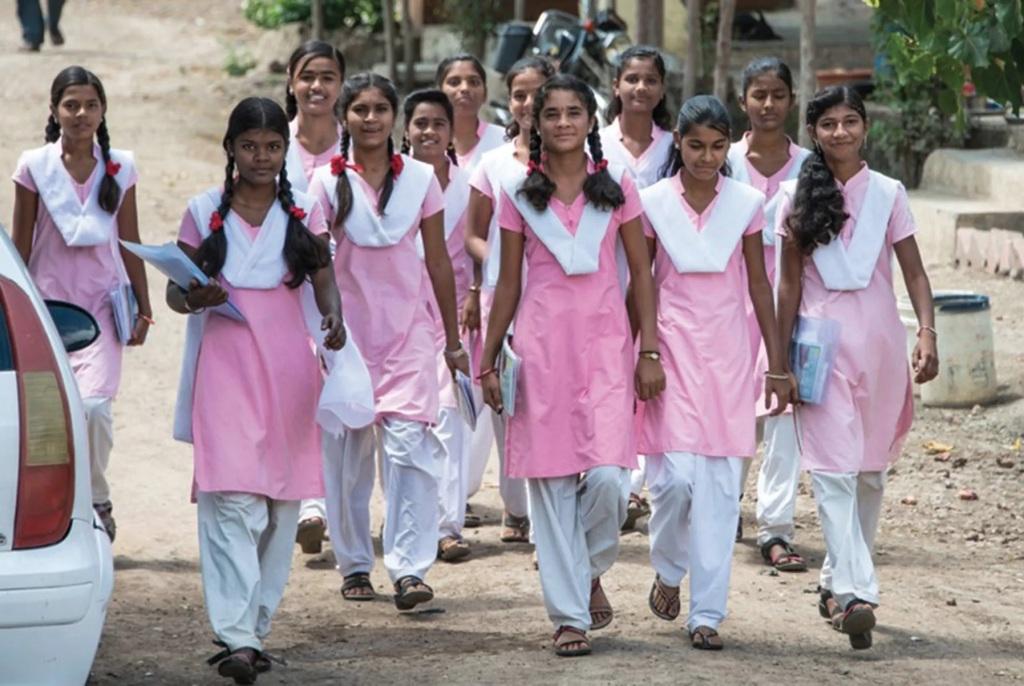


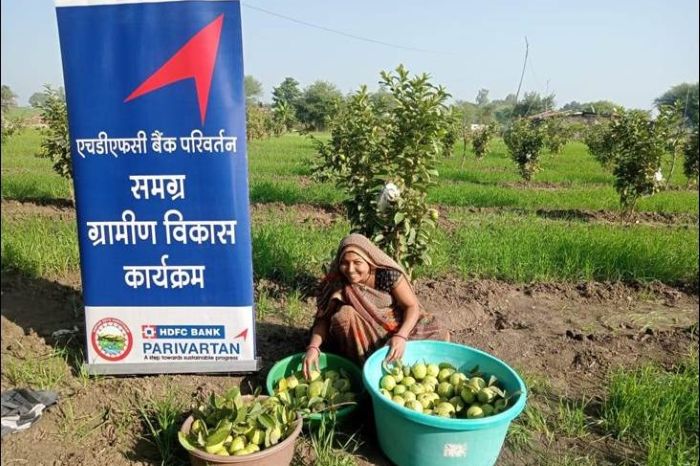
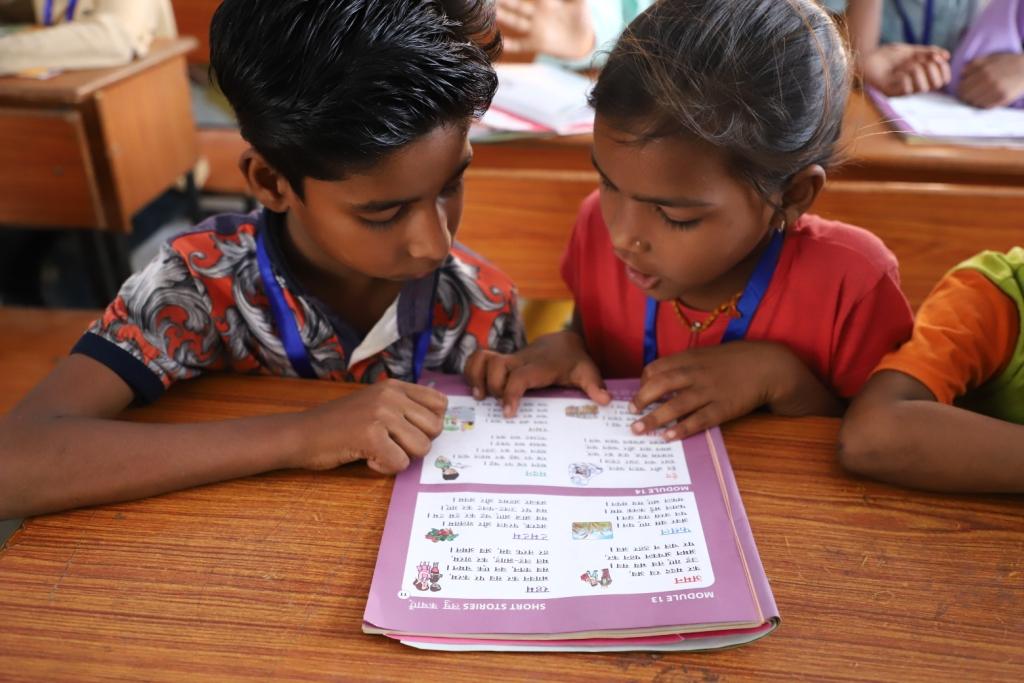
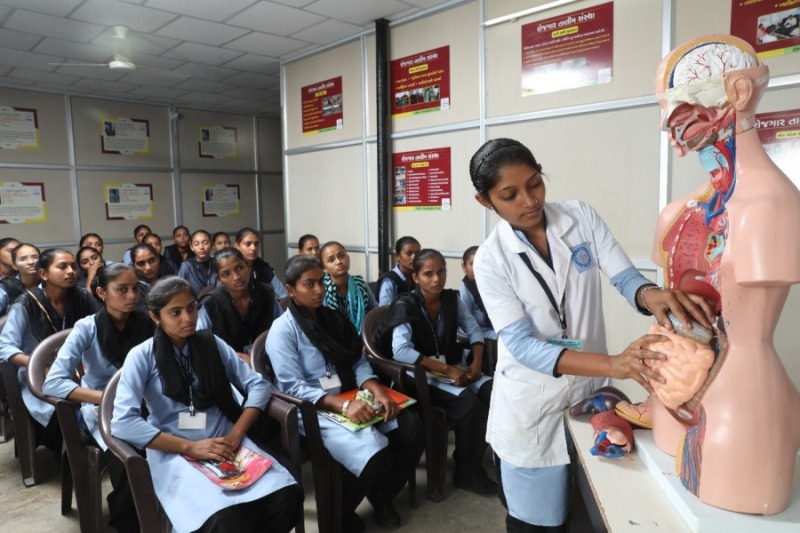

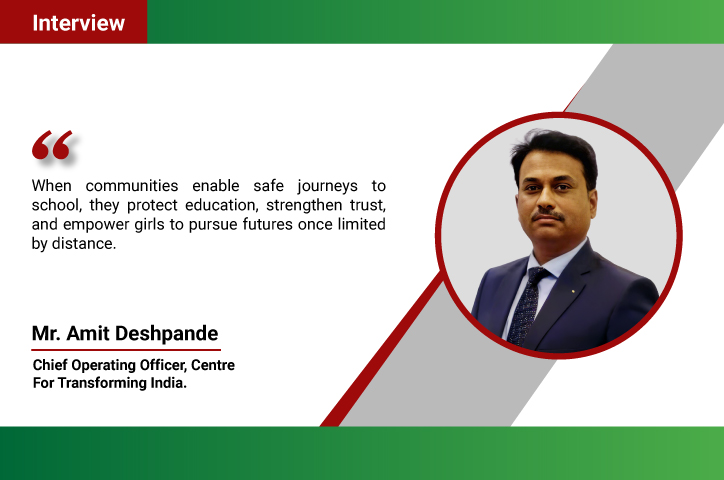






.jpg)



